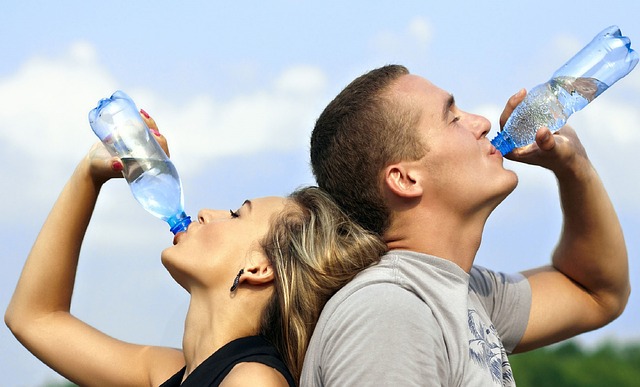
priyanka98742 / Pixabay
Did you know that about 60 percent of your total body weight is water? Our bodies need water to survive. Every time you breathe, sweat, pee or have a bowel movement, you lose water. If you lose too much, you can become dehydrated.
At the least, dehydration will make you feel drained of energy. If it happens quickly, say because you did vigorous exercise outside on a steamy hot day, it can lead to other symptoms.
Symptoms of mild to moderate dehydration
- Increased thirst
- Dry mouth or swollen tongue
- Dry skin
- Dizziness
- Weakness
- Fatigue
- Decreased amount of urine and a deeper yellow color
How much water?
How much water do we need to drink every day? Do other liquids count? I turned to registered dietitian/nutritionist Deborah Brooks for some answers. Deborah is an Associate Professor of Nutrition and Dietetics at Southern Maine Community College and a member of the Maine Academy of Nutrition and Dietetics (MAND).
Water is necessary for all living organisms. It has a lot of jobs in our bodies: it carries nutrients and waste products, lubricates joints, helps regulates body temperature and maintains adequate blood volume.
Water needs vary from person to person due to food intake and physical activity, but also because of environmental factors like the temperature and humidity level. In general, our bodies need about 1 liter of water for every 1000 calories we consume. So, based on an average daily caloric intake of 2000 to 3000 calories, 2-3 liters or 64 -96 ounces per day is recommended for adults. (Check here for children’s recommendations.)
You’ve likely heard the common recommendation of “eight, 8-oz. glasses of water per day,” which is handy if it helps you remember to drink water. However, there’s no real scientific evidence that all that liquid has to be water.
All types of liquids count — coffee, tea, and water are calorie-free (and don’t worry, even caffeinated beverages results in a net fluid increase), while caloric beverages like milk and juice have nutrients that come along, too.
Deborah Brooks, MS, RDN, LD
Cheers! And if you have a question you’d like me to ask a health expert, use the comment section below or send me an email.

What about wine? (I’m only half-joking!)
I knew someone would ask that question. Figures it would be one of my good friends!
I asked registered dietitian Kitty Broihier. Here’s her quick response: “Actually, no place I know of counts alcoholic beverages toward liquid consumption goals. It is very dehydrating. In fact, lots of nutrition people recommend alternating an alcoholic drink with water or seltzer or something — helps curtail the effects of the alcohol and also provides some real liquid.
I’m thinking, however, that light beer might not be as dehydrating, but still, nobody would ever suggest consuming alcohol in order to increase one’s fluid intake. If one is drinking a mixed drink, the other liquids added would probably count — seltzer, juice etc, but not the alcohol itself. Wine does not count either.”